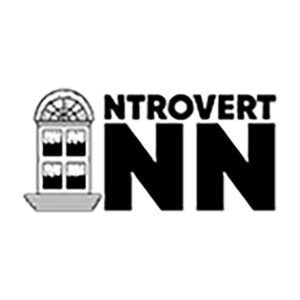Many individuals identify as introverts. They enjoy spending time alone and think carefully before speaking or acting. Introverts often feel more comfortable in quiet places, where they can recharge and well… just exist. So who is the highly sensitive introvert?
On the other hand, some individuals identify as highly sensitive people (HSPs). This group of people perceive the world with an extraordinary depth. And they’re more aware of subtle stimuli, like sound, light or texture. This intense awareness often leads to strong emotional reactions, especially in situations where they’re deeply moved.
Both introversion and high sensitivity greatly impacts how people go about their daily lives, and interact with the world at large.
According to Elaine Aron, a highly sensitive person is more likely to be an introvert. She estimates that about 70% of Highly Sensitive Persons (HSPs) are introverts while the remaining 30% constitute extroverts. So as a HSP, you can either be a highly sensitive introvert or a highly sensitive extrovert.
Today, we’ll learn about the Introvert side of the high sensitivity spectrum.
Who is a Highly Sensitive Introvert?
Simply put, a Highly Sensitive Introvert (HSI) is an introvert who’s also a highly sensitive person. This combination results in a unique personality type that loves solitude and also feels emotions more intensely than others.
Their introverted nature means they recharge by spending time alone. Meanwhile, their high sensitivity enables them to pick up on subtle cues that might be overlooked. This blend of traits makes HSIs exceptionally intuitive but can also cause them to feel overwhelmed very quickly.
5 Signs You’re a Highly Sensitive Introvert
#1: You’re Emotionally Sensitive
As earlier mentioned, HSIs often feel things more intensely and quickly than others. They can go from chill to emotional in just a moment. Managing feelings like anxiety, fear, or anger can be tough for them. Sometimes, this leads to acting on impulse, like getting really frustrated during criticism or arguments. If this sounds like you, you might just be a highly sensitive introvert.
#2: You’re Affected by People’s Emotions
Do you often cry when watching movies? If yes, there’s a chance you might be a highly sensitive introvert. As an HSI, you easily sense and absorb the emotions of others. You notice when someone’s joyful or unhappy, and somehow, you start to feel the same thing too. The funny thing is that this empathy extends beyond personal relationships. The same thing happens when you watch the news or movies.
#3: You’re Sensitive to Light and Sounds
Being a highly sensitive person means you have sensory processing sensitivity (SPS). What seems like normal environmental stimuli like noise, light and sounds can quickly become a disturbance to you. So if you’re an introvert who startles easily, you sure are a highly sensitive introvert (HSI).
#4: You’re a Deep Thinker
One of the similarities introverts share with highly sensitive persons (HSPs) is the fact that they both think deeply. So imagine being a combination of the two? Yeah, now you get it. If you’re a highly sensitive introvert, it’s 99.9% certain that you’d be a deep thinker. You’ll tend to overanalyze things because your mind believes there’s always a hidden meaning.
#5: You’re Empathetic
Since HSIs can easily absorb people’s emotions, empathy isn’t a difficult trait to show. This quality is linked to their sensitive nervous system, finely tuned to pick up on the smallest cues. Their introspective nature helps them understand others. They spend time reflecting on their own emotions and experiences, so they’re often more patient with others.
How Being an HSI Affects Everyday Life
A highly sensitive introvert (HSI) experiences everyday life with high emotional and sensory awareness; this can make routine activities overwhelming. Everyday sounds like car horns, sirens, and dog bark disturb their peace. HSIs may wonder why others aren’t as irritated by these sounds as they are.
This personality can even go as far as affecting the interior design in their homes and offices. Fluorescent lights might cause a headache. You’d often find incandescent light bulbs in their space. An HSI might also be uncomfortable with coarse materials be it rugs, wallpapers or coats.
Highly Sensitive Introverts must understand what triggers discomfort and practise self care to avoid burnout.
Pros and Cons of Being a Highly Sensitive Introvert
PROS:
#1: Highly sensitive introverts are fast learners.
HSIs are usually good students. As Dr. Elaine Aron notes, people aren’t motivated to learn unless their emotions are stimulated. HSIs learn fast especially from experience due to their increased emotional sensitivity.
#2 They are Responsible
Highly Sensitive Introverts (HSIs) are conscientious and reflective, therefore responsible. They often give thought to how their actions make others feel. If they disappoint someone, HSIs genuinely regret and apologize. They eventually learn how to relate with everyone.
#3: They Excel at Leadership
Highly Sensitive Introverts (HSIs) are compassionate leaders. They quickly spot people’s hidden potential. Their intuitive insights benefit others. As leaders, HSIs drive positive change wherever they find themselves. The ability to predict outcomes is also an added advantage.
#4: HSIs are Excellent Mediators
HSIs are healers. They just know when something is wrong. By listening and just being there, they can literally mend the emotional wounds of others. As mediators, HSIs can restore harmony between two people or even groups. Their ability to understand other people’s perspective makes this possible.
#5: They are creative
Creativity means to put seemingly unrelated ideas or resources together in order to achieve an appreciable outcome. HSIs are masters at this skill. And it’s usually evident in their work—no matter the kind.
CONS:
#1: HSIs are easily frustrated
HSIs are big dreamers, literally. Their creativity and passion drive ambitious goals. But they may take on too much leading to frustration. To cope, HSIs must set realistic goals and plan adequately.
#2: They are sensitive to criticism
Highly Sensitive Introverts (HSIs) are extremely sensitive to criticism, experiencing three times the impact as non-HSIs (Dr. Elaine Aron, 1997). However, being assertive—rather than passive—will help HSIs receive criticism better.
#3: They may struggle with setting boundaries
Highly Sensitive Introverts (HSIs) often find it hard to set healthy boundaries. This happens especially if they had a rigid childhood. They may prioritise the needs of others, fearing judgement or rejection. HSIs tend to hold on to toxic relationships, despite being drained.
#4: They take longer to “fit-in”
HSIs may be timid in new environments. They may struggle to reveal their authentic selves, and instead, hide behind a mask. Societal labels like “too emotional” or “too analytical” worsens this. And they may feel inferior comparing themselves to others.
Conclusion
Being a highly sensitive introvert comes with its pros and cons. Embrace your uniqueness and just be you. It’s important to mention that the list of signs you read above is not exhaustive. Also, it isn’t key that you experience all the signs to be sure you’re a highly sensitive introvert.




